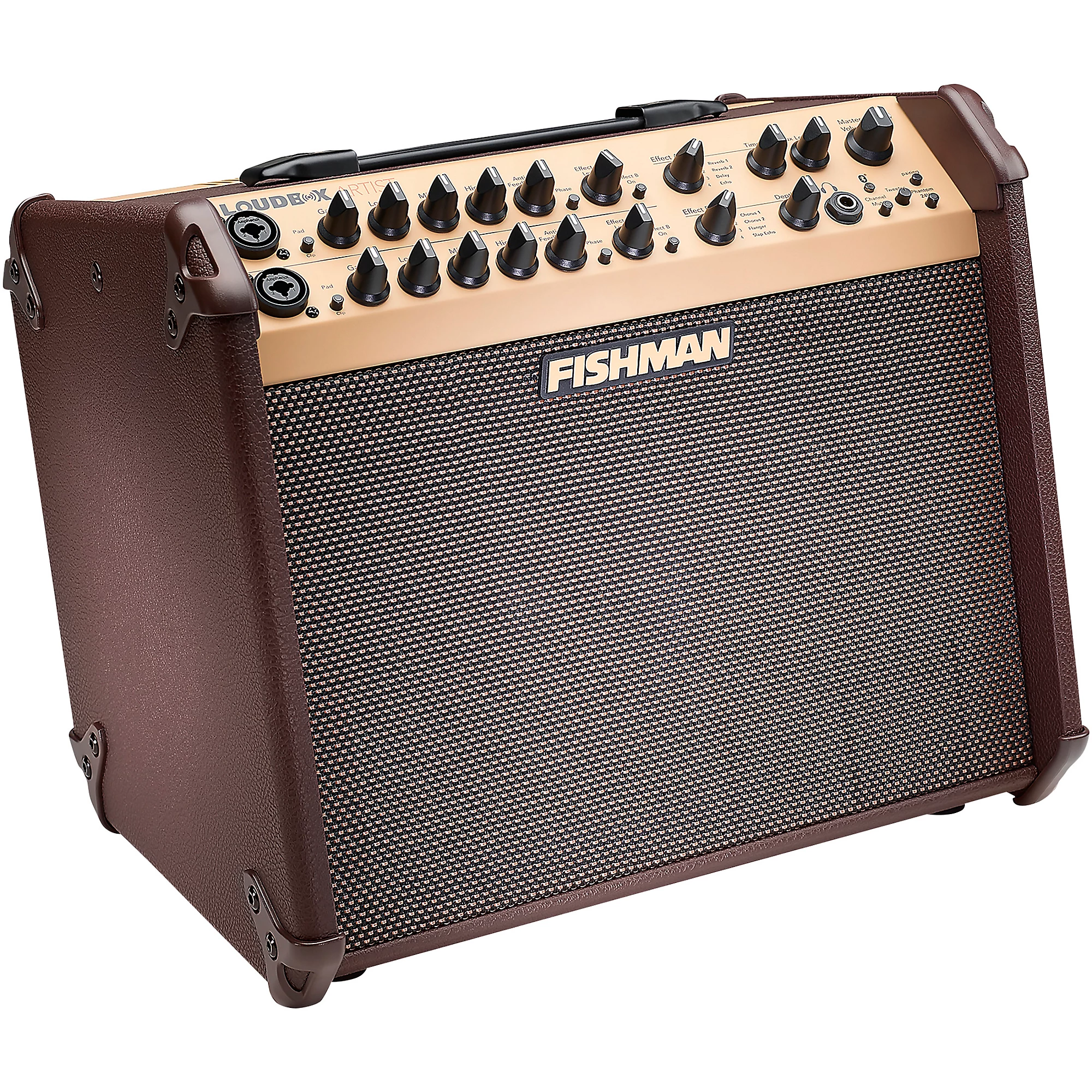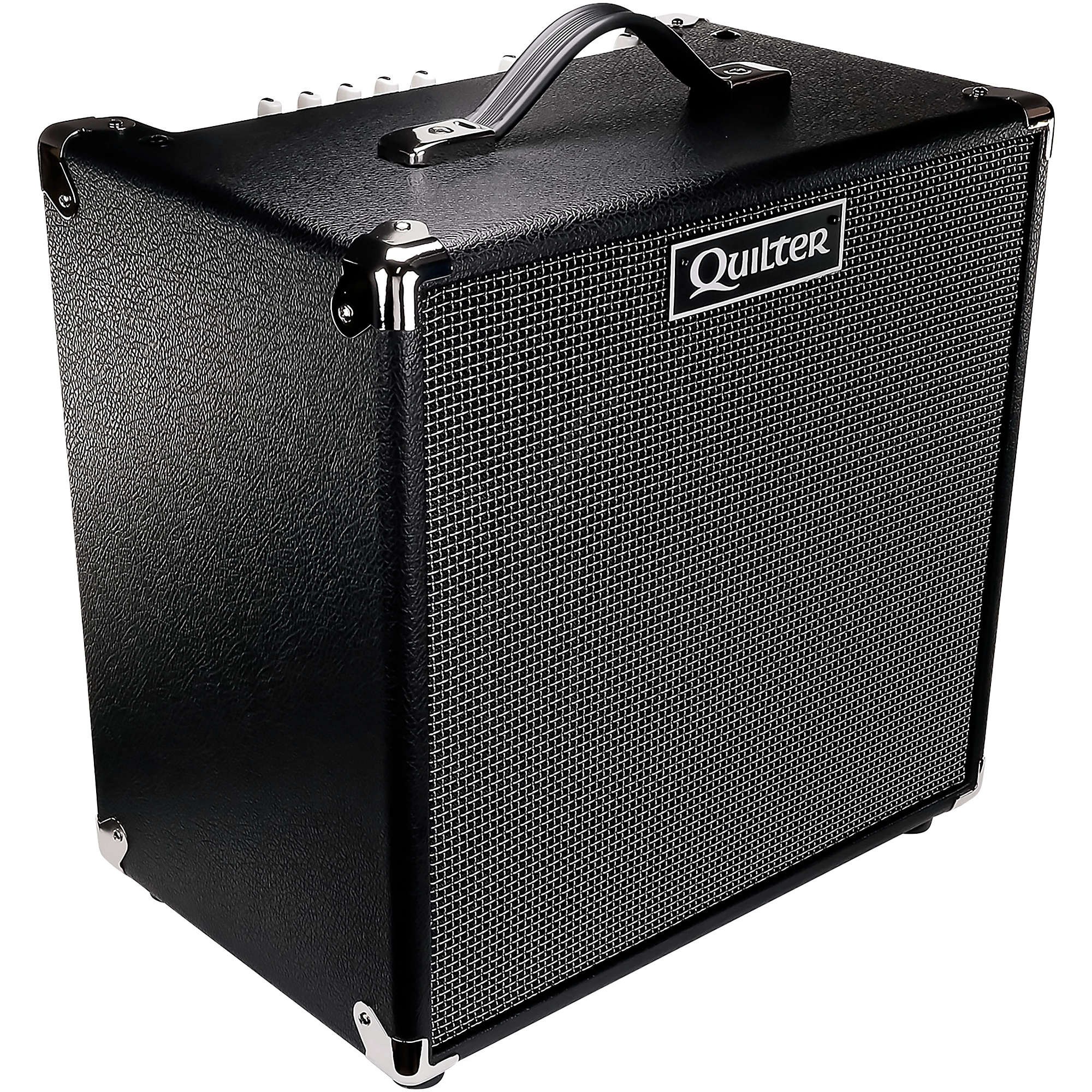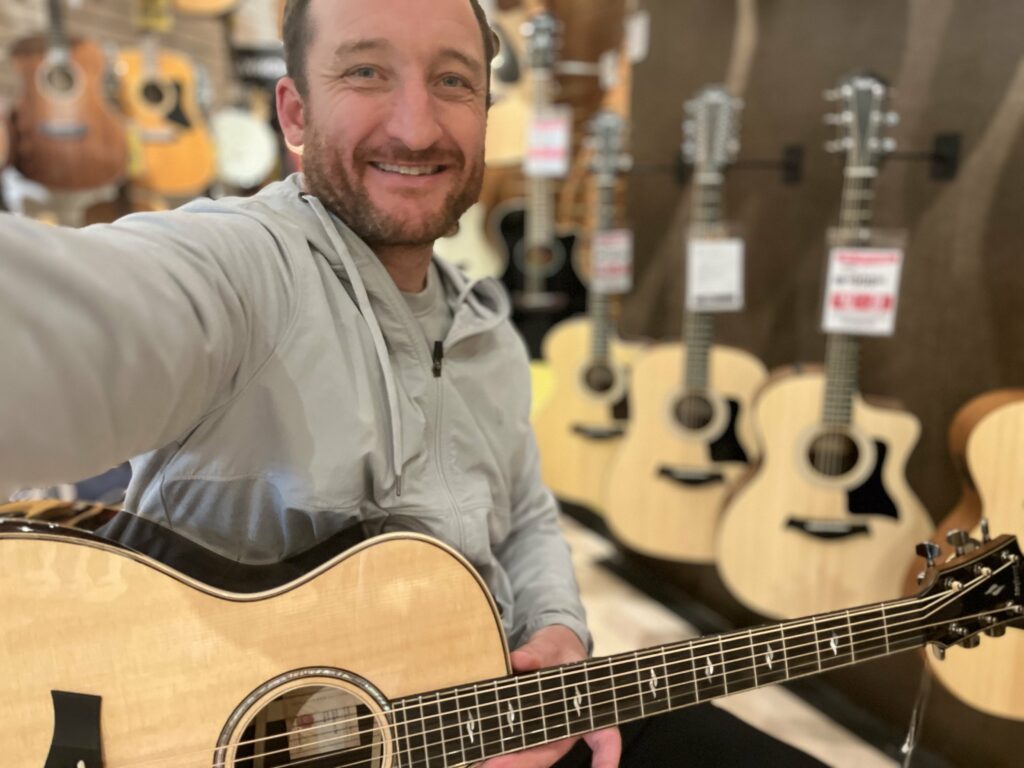Are you a jazz guitarist searching for an amp to give your instrument the clean, warm tone you’ve sought? You’ve come to the right place!
There are plenty of options, whether it’s for onstage use or just noodling around at home. In this blog post, I’ll cover choices that I believe make up the best jazz guitar amplifiers.
With these amps, you’ll be sure to boost your guitar sound while producing great-sounding and articulate riffs on your instrument in no time.
So let’s get started!
The Best Jazz Guitar Amps at a Glance 2024
- Roland Jazz Chorus (Editor’s Choice)
- Boss Katana (Best for Budget)
- Fishman Loudbox (Best for Archtop Guitars)
- Quilter Aviator Cub (Best Solid State Tube Tone)
TL;DR: My Top 3 Picks
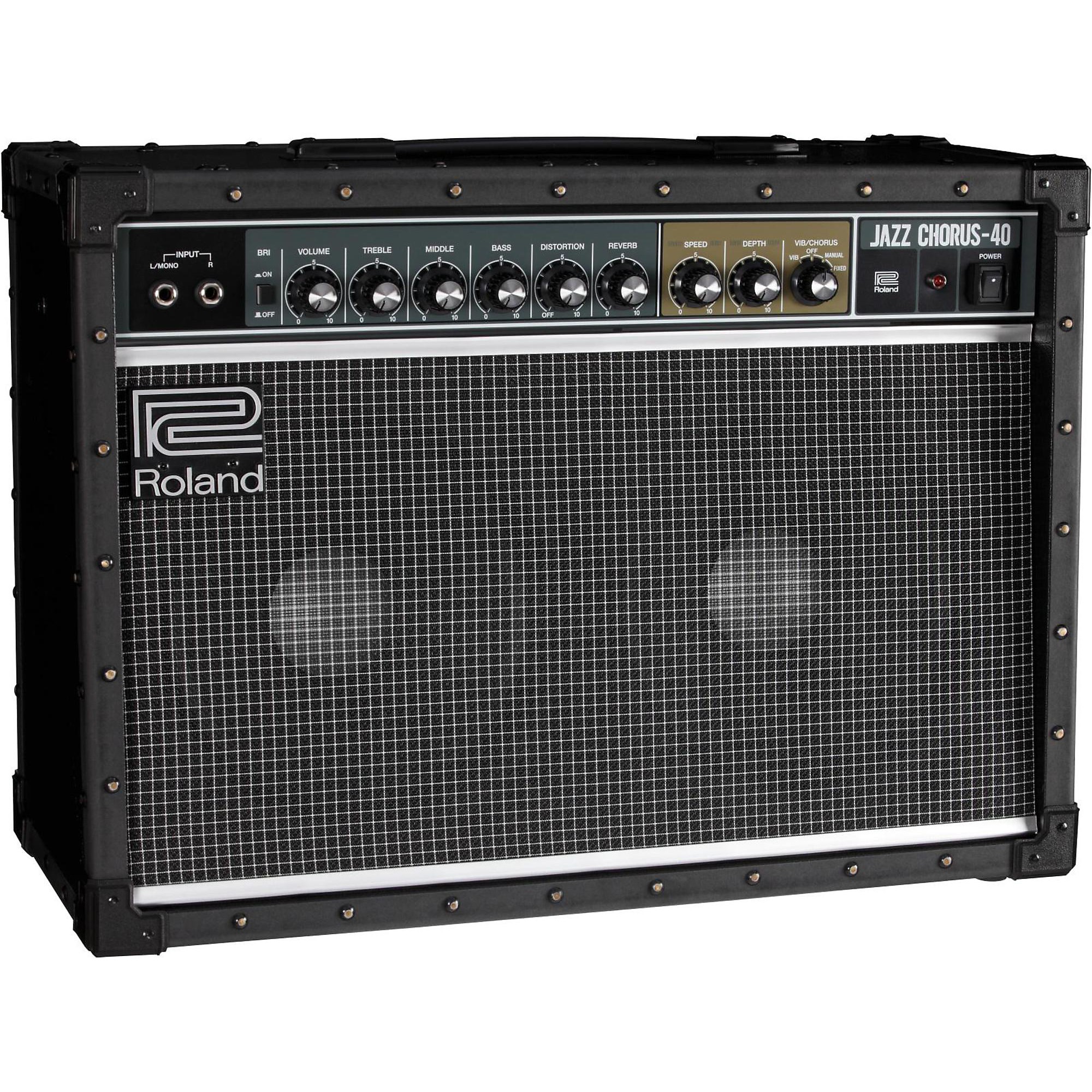
- The crystal-clear tone helps you nail the clean jazz tone you've been looking for
- Each version of the amp comes with stereo speakers and the legendary Boss/Roland bucket brigade effect
- Fantastic amp if you want to incorporate pedals for jazz fusion
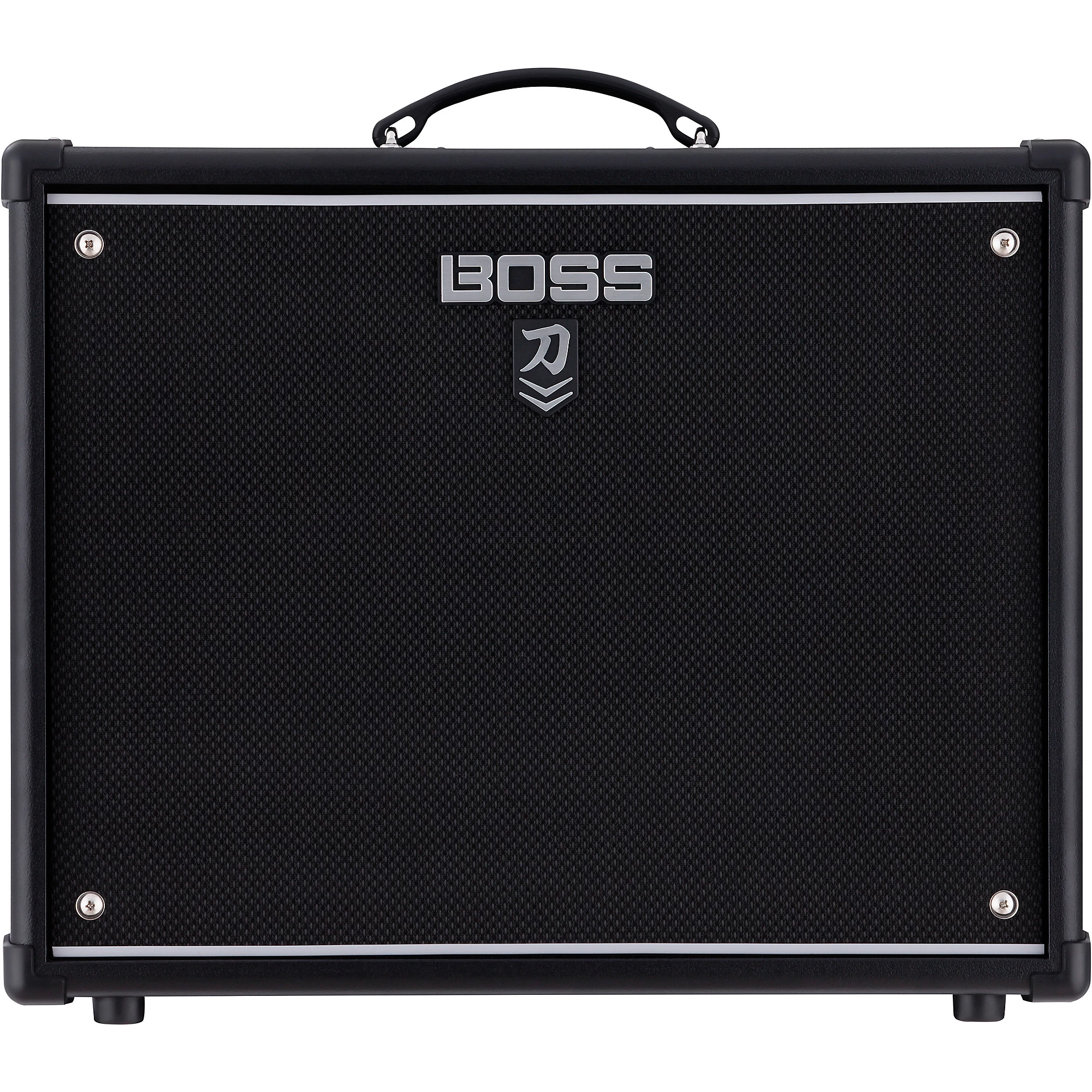
- One of the best jazz guitar amps for the money
- Extremely versatile and feature-packed
- It has an acoustic-electric setting that works excellent for archtop guitars
Table of Contents
Welcome to the Roland Jazz Chorus series, the best choice for getting a clean and articulate jazz tone. These solid-state designs ensure unparalleled clarity and a tone that won't get the gritty breakup you may get with other amps.
The JC-22 is suitable for most casual players, especially for recording guitarists. But if you need that extra power and channel flexibility, the JC-120 is a clean-tone powerhouse.
So whether you're gigging or recording, take advantage of Roland's legendary Jazz Chorus series amplifiers to achieve 'that sound' you've been looking for.
Depending on who you ask or what guitar forum you find yourself on, the Roland Jazz Chorus might get tons of praise or tons of shade. However, if there is one thing that every guitar player can agree on, this amp is very clean.
This is thanks to the all solid-state design. There aren’t any tubes in the Roland Jazz Chorus amp to give you that gritty breakup that most guitarists often desire.
However, the Jazz Chorus series of amps should be on your radar if you’re looking for a pure jazz guitar tone that lets each note stay articulate and balanced.
There are three models to choose from, each with strengths and weaknesses. I personally prefer the scaled-back Roland JC-22. You get everything beloved in its bigger sibling, but something that makes a great practice amp and one of the best recording amps for jazz.
You lose a few additional features in the JC-40 and JC-120, like the distortion (which arguably isn’t going to tickle the fancy of fuzz heads). But because of the pure and clean tone, this amplifier makes a great pedal platform amp. If you are a jazz guitarist who likes to add a bit of funk and fusion to your tone, you can always add a pedal or two.
But each model includes the most sought-after tone in these amplifiers…the bucket brigade chorus. The Boss/Roland Bucket Brigade is one of the most iconic sounds in modulation history. The JC series of amps gives you this tone built into the amp. Each model has two speakers for stereo, which provides you with the classic syrupy effect.
While the JC-22 is the most suitable jazz guitar amp for most jazz guitarists, If you’re primarily a live performer, consider the Roland JC-120 Jazz Chorus.
If a pure, clean tone is what you’re looking for in your jazz guitar amps, then the Roland Jazz Chorus series of amplifiers is one of the best you can buy. If you need to push your sound to more extreme places, then putting pedals in the signal chain will turn this amplifier into your new superpower. Check it out today!
- A fantastic clean jazz guitar amp that has a balance and articulate tone
- It makes a great pedal platform if you want to push the boundaries of your sound
- No tubes mean less maintenance
- Distortion on the JC-140 and JC-40 isn't a fan favorite
- Some claim the low end lacks definition
Are you a jazz musician looking for an affordable yet reliable amp to take your sound to the next level? Look no further than the Boss Katana! This classic has earned its reputation as one of the best amps on the market for a reason.
Its power control system allows you to increase or decrease headroom and achieve crystal cleans or tube-like saturation at lower volumes. Its dedicated acoustic-electric amp setting also comes in handy for amplifying hollow-body guitars. Helping retain their unique sonic qualities while reducing feedback risk at louder volumes.
Experience the incredible jazz sound with the Boss Katana – an amp that gives you top-quality performance without breaking your budget!
The Boss Katana has earned the reputation of being one of the market’s most versatile and affordable “tube-like” solid-state amps. It’s got plenty of amp models, effects, and cab simulation to be an incredible all-rounder for any guitar player.
However, there are a few tricks that the Katana has up its sleeve that makes this an incredible jazz guitar amp.
First, you have a power control that can increase or decrease the amp’s headroom. While guitar players often use this to make the amp saturate like a tube amp at low volumes, if you keep it at its 100-watt max (50-watt for the 50 models), you can get some incredible clean amp tones without introducing any dirt.
Second, a dedicated acoustic-electric amp type can work wonders for your hollow and semi-hollow body guitars. This setting helps you amplify these archtop jazz guitars while maintaining rich resonance and reducing the chance of feedback at louder volumes.
There are various models in the Katana lineup, and it can be confusing to know which is the suitable jazz amp for you. If you aren’t playing with many external effects and want to utilize the 60 built-in effects options, then the Boss Katana 50 is probably all you need.
However, suppose you’re looking to expand your sound with external effects pedals, expand your unit to be stereo, and be able to control the amp with a footswitch. In that case, you will want to go with the 100 or Artist.
If tone and functionality are what you aim for, then the Artist will give you a rounder and more extended bass response. This is due to the upgraded speaker in the Artist. However, as you explore the Artist range, you are no longer looking at a “budget” pick. You are getting into mid-range terrority, where you have many options from tube and solid-state amps.
So it’s up to you at that price if the Katana is the amplifier you want to go with for your jazz guitar rig. However, in your search for the best jazz guitar amp, you can’t go wrong with the ever-popular (and polarizing) Boss Katana.
- The acoustic-electric setting is excellent for archtop guitars
- High headroom, solid-state amp keeps your clean signals dirt free
- The 50 and 100 models of the Katana series are very affordable and punches well above their weight
- The 50 model of the series isn't compatible with the footswitch and doesn't have a dedicated FX loop
- The Artist model of the series is the premium option but gets into a price range where this is no longer a fantastic budget pick
Are you looking for the best amp to amplify your archtop jazz guitar? Look no further - the Fishman Loudbox series of amplifiers is here to provide impressive sound quality and versatility.
Apart from its impressive projection, this amp also has a rotary knob for feedback suppression. Any noise will be eliminated without cutting down on your sound quality — something all hollow-body players can appreciate!
For archtop jazz guitarists seeking professional quality sound at an affordable price point, look no further than the Fishman Loudbox series! Reliable performance in any environment and simple operation make it just right for your rig — so why not give it a try today?
Who doesn’t love a tremendous hollow-body electric guitar for jazzy acoustic tones? While these guitars have a classic elegance and remarkable resonance, they are highly prone to feedback when plugged into an amplifier or PA.
This is where the Fishman Loudbox amplifiers come in to save the day. While these amps are technically for acoustic guitars, you can get some serious tones, power, and feedback control for your jazz box.
The three models in the series have similar features. Still, the difference comes in power, built-in effects, and the second channel’s ability to power condenser microphones for singing or amplifying another acoustic instrument.
If your looking for something to use as a practice amp or a recording amp, for your archtops, the 60-watt Mini should be all you need. However, for a gigging jazz guitarist, you may need the extra power and flexibility of the Loudbox Artist or Performer amplifier.
These amplifiers have more built-in effects, such as delay, flanger, and echo. While this might not be exciting for jazz guitarists looking for a pure tone, it can help you add depth and dimension to your playing that can help bring extra spice to your sound.
The Fishman Loudbox has a rotary knob for feedback suppression, which works well. So you can ensure that your guitar will be heard without teetering on the edge of destructive, ear-piercing noise.
While this amp’s internal components and build are solid, the covering is easily damaged and leaves a lot to be desired.
Suppose you’re looking for the best jazz guitar amps for your semi-hollow and hollow body archtop guitars. In that case, you need to seriously consider one of the Fishman Loudbox amps today!
- Easily suppress the feedback that archtop guitars have at loud volumes with the rotary feedback suppression knob
- The Loudbox amps are lightweight and easy to travel with
- Flexible tone and fx controls to get the most tone out of your guitar
- The covering feels cheap and damages easily
- Some jazz players may not find the necessary bells and whistles necessary
The Quilter Labs Aviator Cub is the perfect solution for jazz musicians who love the tube tone but don't want to deal with the hefty weight of traditional amplifiers.
Featuring iconic tones from legendary Fender amps like the Twin Reverb, this lightweight amp packs tones of iconic sounds. It won't let you down when it comes to those sweet tones you've been searching for.
Jazz guitarists looking for a lightweight amplifier that gives you the iconic tone of the best Fender amps need to pay attention to the Quilter Labs Aviator Cub.
While tube amps can introduce dirt into a signal, especially at higher volumes, there is something special about the clean tone of a great tube-based Fender amp. All guitarists covet the round and musical tone that responds to a player’s dynamics and could be what you need to take your jazz playing to the next level.
Most guitar players may be inspired to check out the Aviator Cub for its ability to bring tones from Fender’s more iconic rock heritage, like the Fender blues deluxe. However, one of the amp models you can choose from that is great for playing jazz licks is the blackface.
The classic Fender Twin Reverb is one of the most iconic blackface designs for its transparent, clean, and round tone. However, with the Quilter Labs Aviator Cub, you won’t have to deal with the notorious weight of the Twin, as this amplifier only weighs 21.5 pounds!
There’s everything you’d expect from a great jazz amp. There’s a built-in reverb and a dedicated mono fx loop for you fusion players. However, because this is a solid-state guitar amp at louder volumes, you may notice a bit of “shrillness” in the high-end.
Something is missing from the natural compression and saturation you get from tube amps. And for this price range, you can purchase a Fender Blues Junior IV for almost the same price.
But suppose you’re looking for a fantastic jazz guitar amp for travel, gigs, and an ultra-realistic tube tone from the most sought-after Fender Amps. In that case, the Quilter Labs Aviator Cub is worth digging into.
- If you have a Y-Cable, you can blend the tones of the different amp styles
- Solid State design doesn't add any additional distortion into the signal, keeping the headroom high and clean for great jazz tones
- Gives you those classic Fender tube tones in a small and lightweight package
- Treble Boost can add an unpleasant sharpness to the tone
- 50-watt power may not be enough loudness for players in a live setting
The Best Amp for Jazz Guitar Buyer’s Guide
When it comes to finding the best amp for jazz, there are a few things you need to consider. Your choice of amp should depend on the style of jazz music you want to play, your budget, and overall power output.
Most jazz guitarists prefer amps with plenty of headroom to keep clean tones pure. Also, look for amps with natural-sounding reverb and delay effects if you want to add dimension to your sound.
Solid State vs. Tube Amps
All of the recommendations in this list are solid-state amplifiers. Solid-state amplifiers don’t use vacuum tubes for amplification and are usually lighter than tube amps. They also have higher headroom meaning the clean tones will stay true even at high volumes.
Solid-state amps are often critiqued as sounding sterile and shrill. However, in the case of the Roland Jazz Chorus, the clean tones can stay articulate and clear at louder volumes which is a considerable benefit for jazz players.
On the other hand, Tube amps introduce natural saturation and compression into the signal when driven hard. This can give you a fat tone but also increases noise levels. This can sound more natural and pleasing to listeners, but this distortion can be hard to control and “muddy up” your chords.
Power of the Output
For jazz guitar, you don’t need an overly powerful amp. A 50-watt amplifier should be enough volume for home practice, small gigs, and recording sessions.
If you’re playing in large venues or outdoor stages, you may want to look for something in the 100-watt and up range.
Also, it’s worth noting that if you are playing a solid-state amp, the wattage needs to be higher to get the push you need from your speakers.
Tube Amps = less wattage needed for higher volumes.
Solid State Amps = more wattage for higher volumes.
Built-In Effects
Many amps on the market offer built-in effects such as reverb, delay, and chorus. These can give your tone more depth and dimension and help create unique sounds.
However, some players may not want these additional effects and prefer something more stripped-down and basic. In this case, you may only need to go for the base model in any series of guitar amps.
However, if you want to expand your sound with external guitar pedals, ensure that you purchase an amp with an FX loop.
Combo Amp vs Stack
I didn’t include amp heads and cabinet options because combo amps are the best value for most players.
Amp heads and cabinet combos have tons of power, are heavy, and take up a lot of space. There is a place for amp heads if you want to try pairing different speaker configurations and want a more structurally sound amplifier.
However, most combo amps should do the job. It’s also worth mentioning that amp builders pair the proper speaker in their combos to get the best tone out of the amp.
FAQ
What are the benefits of using a solid-state amp for Jazz playing?
Solid-state amps generally have high headroom and don’t distort as easily as a tube amp. While this grit is often desirable for guitarists, when it comes to traditional jazz, you may want an amplifier that can give you volume while staying clean.
Solid-state amplifiers are usually lighter than valve tube amps as well.
What are the benefits of using tube amps for Jazz playing?
Tube amps provide more warmth and a more natural sound than solid-state amplifiers. They tend to have more “mojo” and are usually preferred by guitarists.
The downside is they are usually heavier and noisier than solid-state options. Furthermore, tube amps require regular maintenance and may need to be replaced more often.
The Bottom Line
If you’re in the market for the best jazz guitar amps, any of the choices on our list would be a great option. Consider your budget, the size of your gigs, and the effects you want before deciding on an amp.
Ultimately, choosing an amplifier that best suits your needs is essential. With a bit of research and some trial and error, you should have no problem finding the perfect amp for your jazz playing.
Suppose you want a classic amp that has thousands of satisfied users. In that case, the Roland Jazz Chorus series of amplifiers is an excellent amp that can fit most budgets and styles.
Check it out today!

- The crystal-clear tone helps you nail the clean jazz tone you've been looking for
- Each version of the amp comes with stereo speakers and the legendary Boss/Roland bucket brigade effect
- Fantastic amp if you want to incorporate pedals for jazz fusion

- One of the best jazz guitar amps for the money
- Extremely versatile and feature-packed
- It has an acoustic-electric setting that works excellent for archtop guitars

